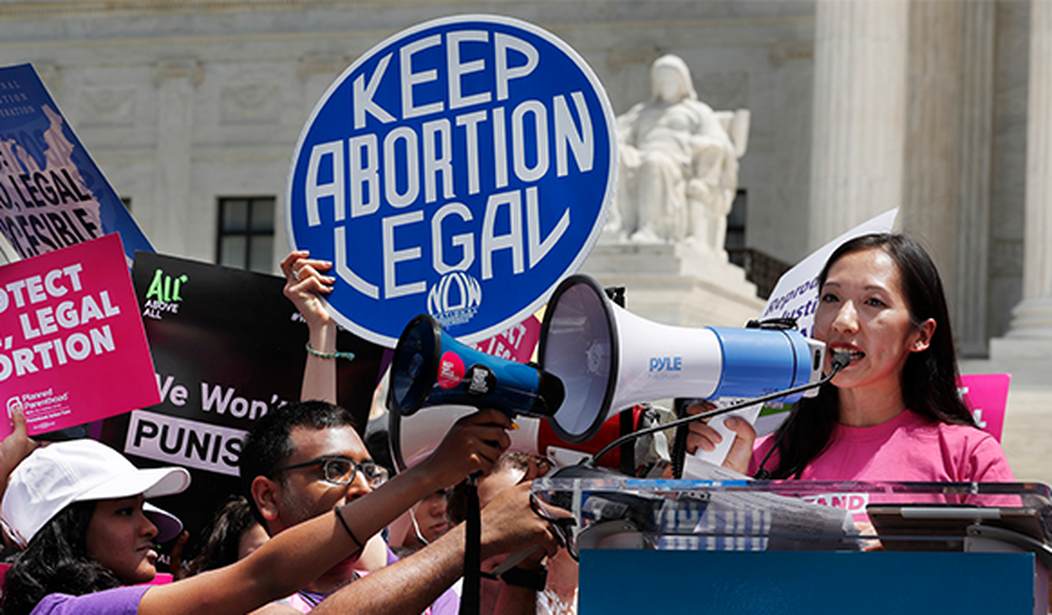On Monday, the U.S. Court of Appeals for the Seventh Circuit upheld an Indiana law that requires abortion providers to report abortion procedure-derived conditions to the state after the statute was challenged by Planned Parenthood.
The case, Planned Parenthood of Indiana and Kentucky vs. Marion County Prosecutor, et al., began in 2018 when Planned Parenthood first filed the lawsuit challenging two newly-enacted state provisions, the Complications Statute and the Inspection Statute. The former requires that abortionists document and report conditions resulting abortion complications to the state while the latter requires annual inspections of abortion providers’ facilities.
At the United States District Court for the Southern District of Indiana, U.S. District Court Judge Richard Young held that the Complications Statute is unconstitutionally vague, but upheld the constitutionality of the Inspection Statute. The state then appealed to the Seventh Circuit with respect to the Complications Statute.
The three-judge panel consisting of U.S. Circuit Judges Diane Wood, Frank Easterbrook, and Amy St. Eve rejected Planned Parenthood of Indiana and Kentucky’s and Young’s conclusion that the Complications Statute was unconstitutionally vague and remanded the case back to the district court.
Indiana’s Attorney General Todd Rokita shared the news on Twitter, describing it as “a huge win for the safety of women.”
This decision by the Seventh Circuit is a huge win for the safety of women. Complications from abortion have been notoriously difficult to track, resulting in a skewed understanding of the danger abortion poses to women. https://t.co/FPLPNDUo4Q
— Todd Rokita (@AGToddRokita) August 5, 2021
Recommended
“This appeal queries whether an Indiana statute that requires medical providers to report complications ‘arising from’ abortions to the state is unconstitutionally vague on its face,” the opinion stated. “Although the statute has some ambiguity, we conclude that Planned Parenthood has not shown that the law is unconstitutionally vague on its face in this pre enforcement challenge.”
In the statute, abortion complications are defined as “any adverse physical or psychological condition arising from the induction or performance of an abortion.” Included in the law are over 20 conditions that are considered “reportable,” including incomplete abortions (“retained tissue”), failure to terminate pregnancy, pelvic inflammatory disease, cardiac arrest, amniotic fluid embolism, and death. These conditions, as well as many others listed, are severe and life-threatening. The law imposes criminal penalties if abortion providers do not comply.
“Planned Parenthood maintains that several of the complications listed in the Complications Statute are ‘not abortion-specific complications and almost never occur as a result of abortions,’ but the brief stops short of stating that these complications are impossible,” the opinion stated. “As a result, although we appreciate the dissent’s concerns about the ambiguity of this Statute, the Statute must survive Planned Parenthood’s pre-enforcement, facial attack.”
Although the Seventh Circuit upheld Indiana’s Complications Statute, there were aspects of it that “gave us some pause,” as stated in the opinion.
“The Statute requires doctors to report the incidence of any one of the twenty-five listed conditions ‘arising from’ an abortion, but the Statute does not give objective guidance regarding the temporal, spatial, or causal relationship between the abortion and the complication,” the opinion stated. “Moreover, although several other states do impose abortion-complication reporting requirements on doctors, Indiana’s broad formulation of its Complications Statute is unusual among peer statutes.”
One comparison noted is between Indiana’s Complications Statute and Michigan’s laws pertaining to reporting conditions arising from abortions. “Furthermore, most of the other abortion-complication reporting statutes cited by Defendants use more specific language to guide doctors about the causal relationship required between the abortion and any complications. For example, Michigan’s complications-reporting law provides that the complication must be the primary, secondary, or tertiary result of an abortion. And besides using a more specific causation standard, the vast majority of complication-reporting statutes explicitly include some kind of ‘reasonable medical judgment’ standard.”
This explanation may explain the ‘ambiguity’ mentioned at the beginning of the opinion. But despite this, Indiana’s law was upheld by the court and the case was remanded back to the district court.
“Enforcement of this reporting law is a big step in the direction of collecting accurate data on the harms abortion causes,” Rokita shared on Twitter. “As Attorney General, I'll continue to fight tirelessly for the rights of the unborn. Every child’s life is precious & I'm proud to fight for the defenseless.”
Enforcement of this reporting law is a big step in the direction of collecting accurate data on the harms abortion causes. As Attorney General, I'll continue to fight tirelessly for the rights of the unborn. Every child’s life is precious & I'm proud to fight for the defenseless.
— Todd Rokita (@AGToddRokita) August 5, 2021
























Join the conversation as a VIP Member